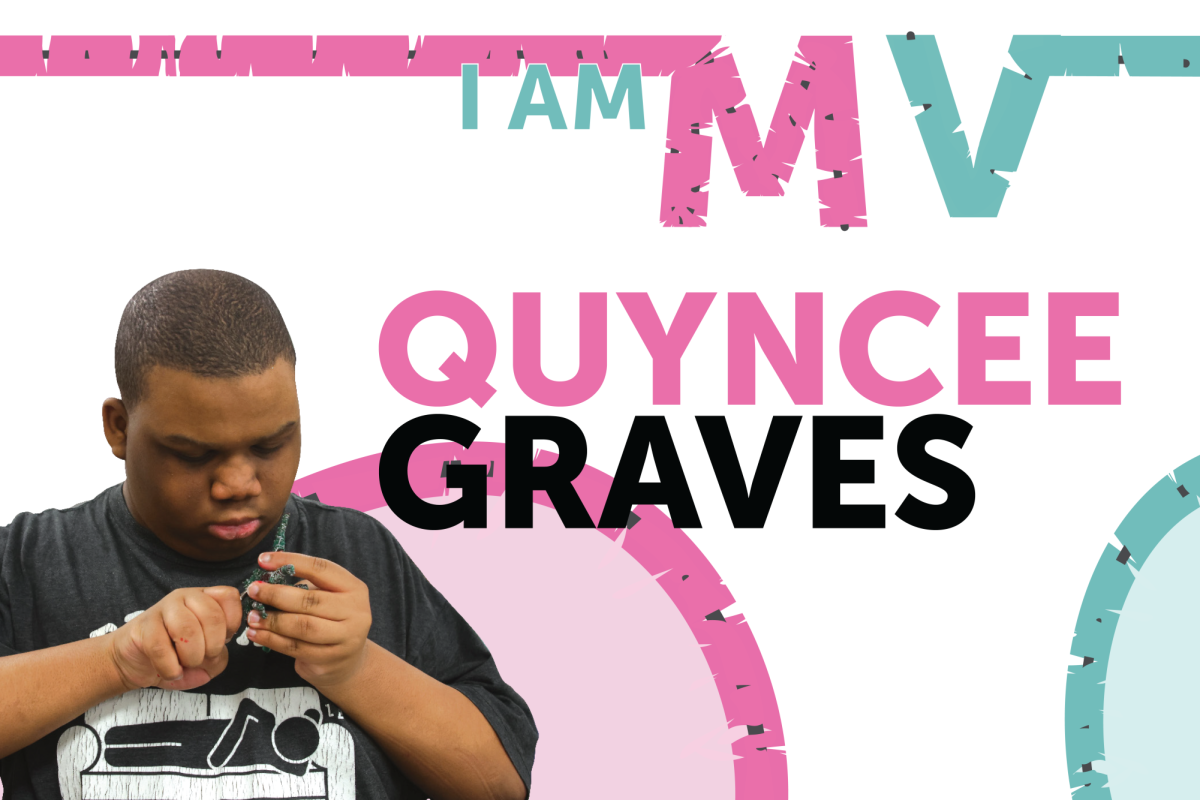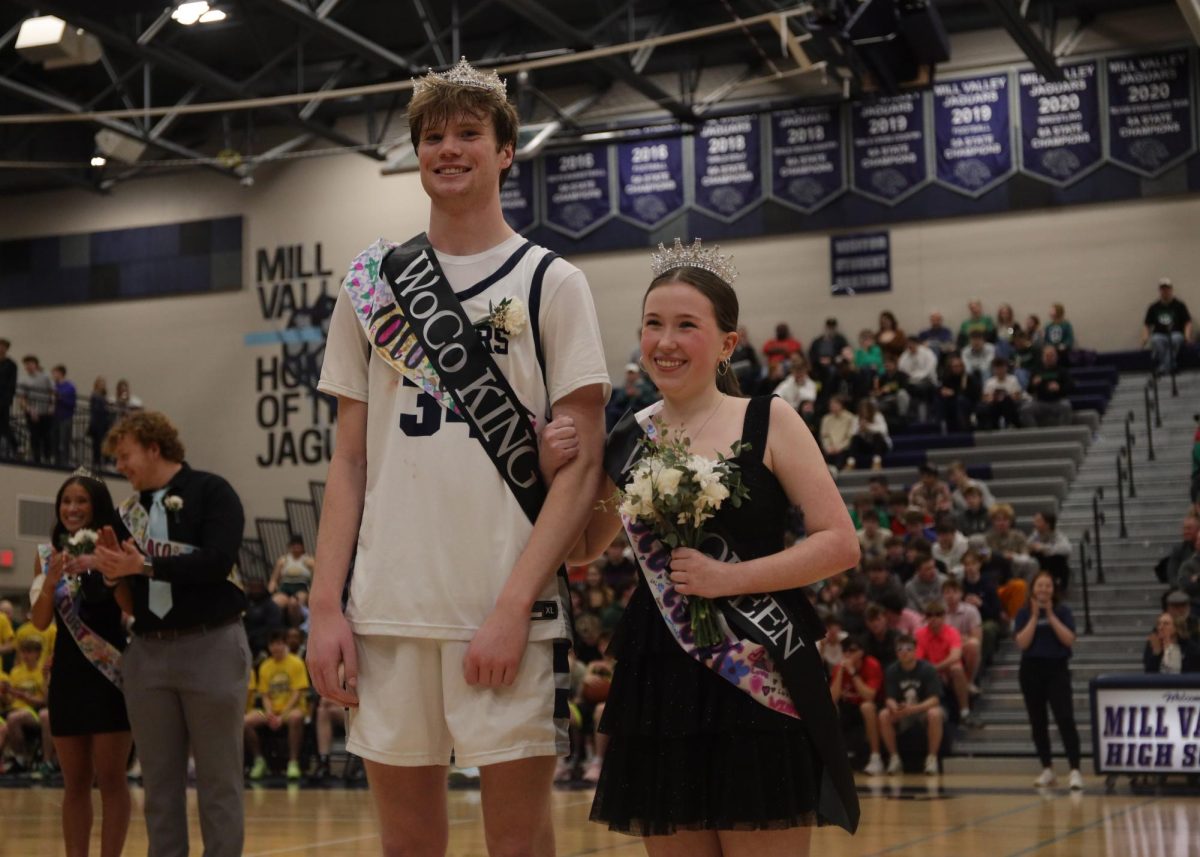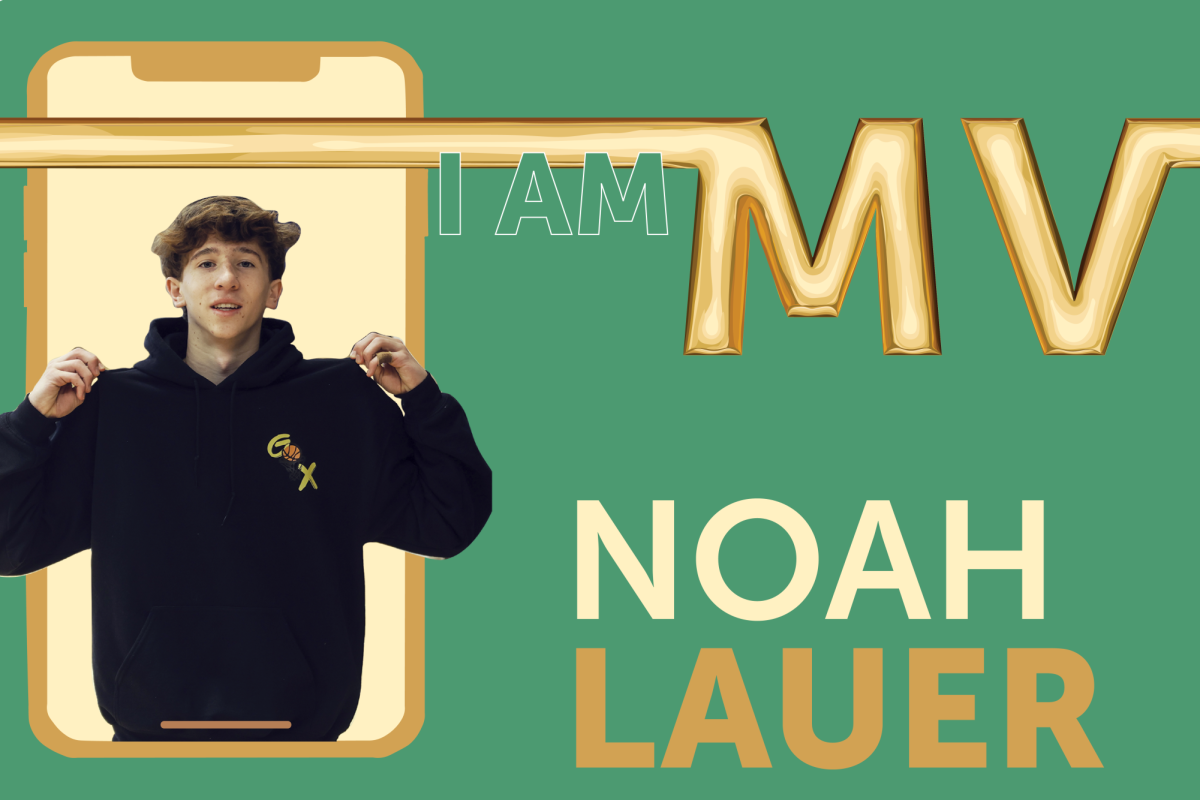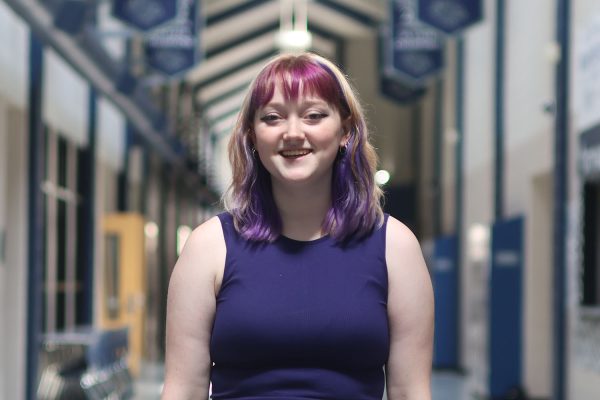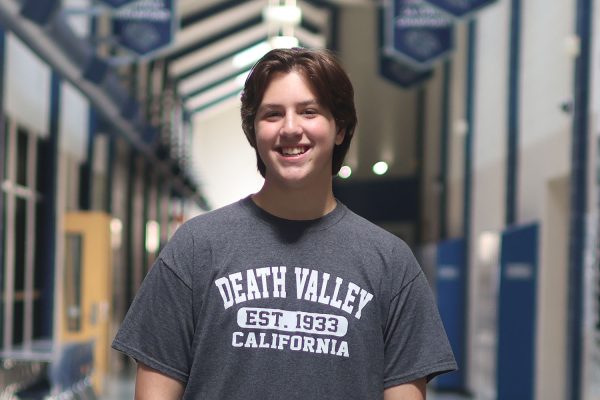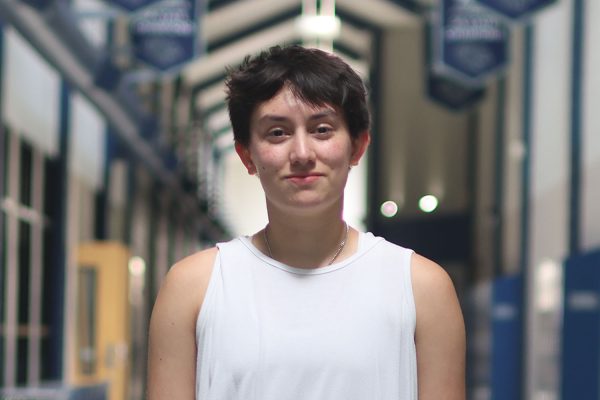Crushing in Context
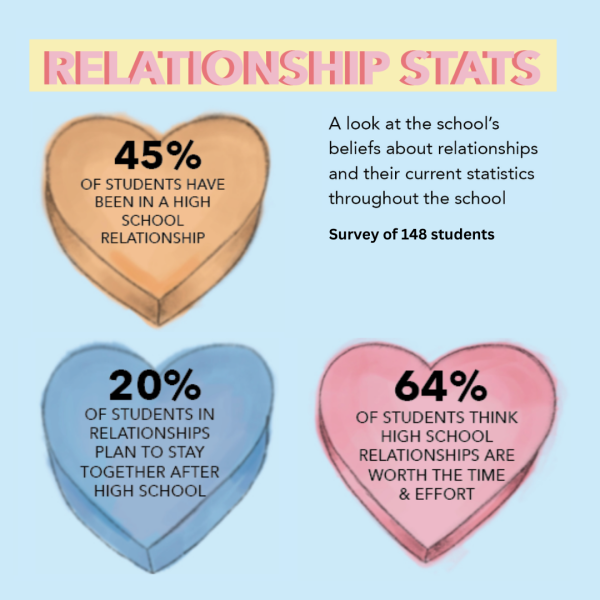
It’s well-known that high school serves as an introduction to independence, work ethic, perseverance, balance and so much more. However, high school is also a great opportunity for students to get their first introduction to the complicated world of dating. Many students use high school as a training ground for learning how to love and care about someone seriously. In a JagWire survey of 148 students, 68% said that they have been in a relationship or have experienced the beginnings of one, showing that dating is clearly a priority for students. However, dating has changed throughout the generations, especially between parents and students. This has prompted discussion about what a high school relationship looks like and what the point of dating in high school even is to begin with.
How we Work
Relationships can vary dramatically in structure; what works for one couple doesn’t necessarily work for another.
For juniors Reese Miller and Kai McGarry, a relationship with clear boundaries and understanding is key.
“I feel like our relationship is honestly more of a friendship,” Miller said. “We respect each other a lot and respect each other’s boundaries. I feel like there’s no expectations in our relationship, so we understand that we each have our own flaws.”
Understanding can play a major role in feeling connected in a relationship, according to senior Isabella Skramstad who says that it is crucial to her relationship with sophomore Sienna Suderman.
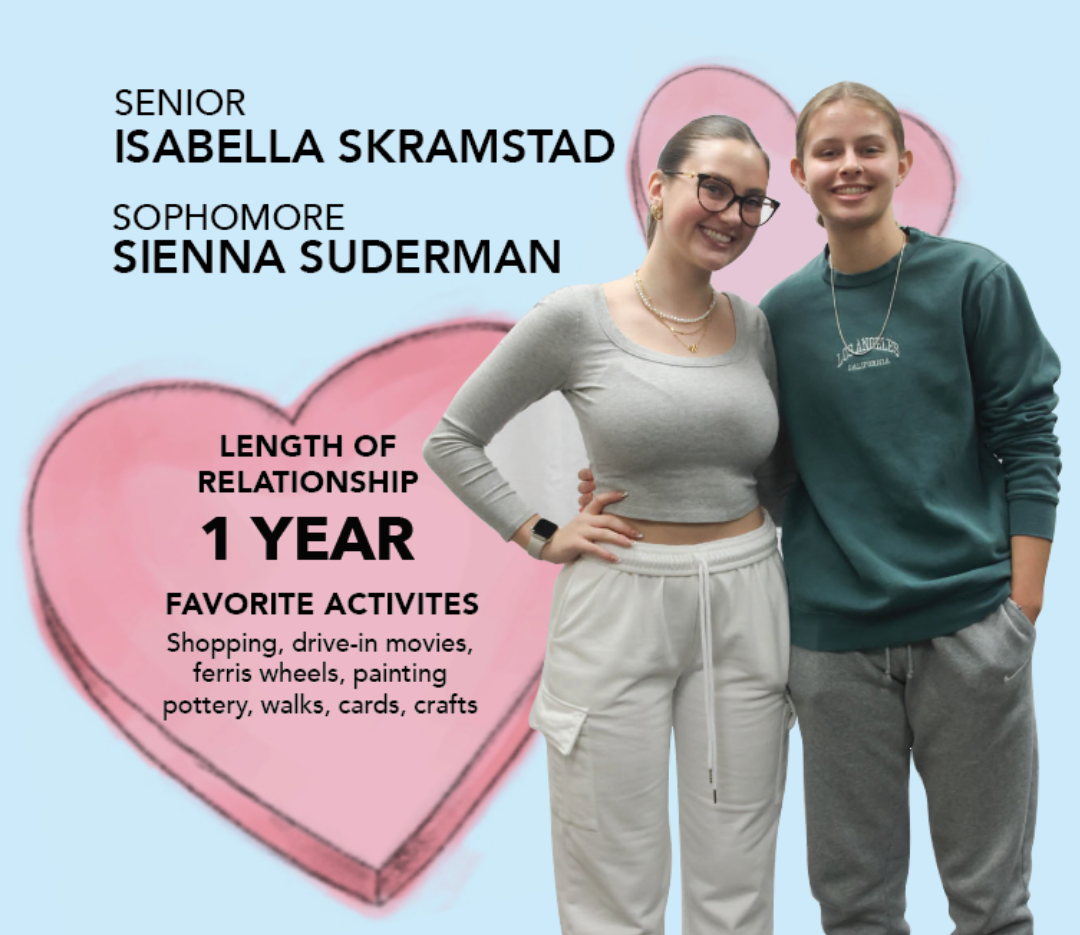
“I’ve never had the type of connection that I have with her,” Skramstad said. “I’ve never loved someone like I love her. We just understand each other on a whole different level. We put each other first and we understand what each other needs.”
The understanding Miller and Skramstad referred to can be reached in many ways, but for freshmen Chris Hale and Andrew Estes, communication is the key.
“We communicate with each other and just talk about everything and how we feel,” Estes said.
Another important component of a relationship is undivided attention to your partner, according to senior Mason Kemp. Kemp and senior Maddie Hopkins prioritize one-on-one time whenever possible.
“We like to spend a lot of quality time together, whether we have five minutes to hang out or five hours,” Kemp said. “We just like spending that time together.”
Suderman explained that quality time is important for her and Skramstad too, saying that they prefer it over communicating online.
“We’re not very big texters,” Suderman said. “We do text but the main thing is hanging out and that’s where we have all of our conversations: in person.”
However, access to technology and the internet can be beneficial as it allows people to stay connected, even when they cannot communicate in person. For example, media specialist Ashley Agre met her husband in high school when she had just gotten her first cell phone, allowing them to stay connected.
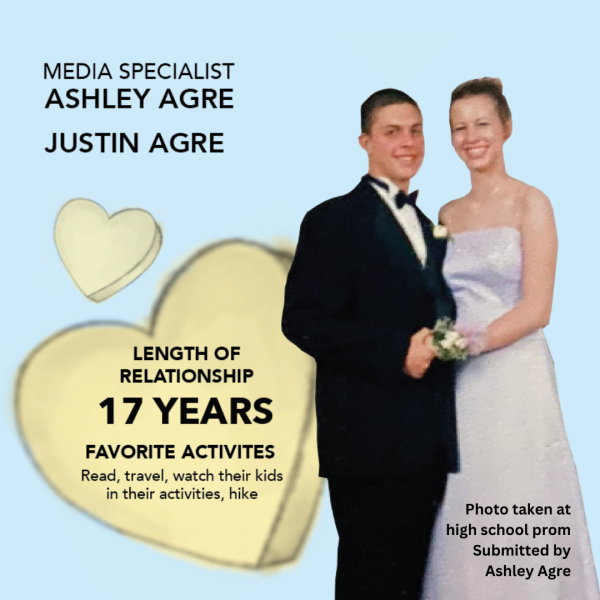
“We met two weeks after I turned 16 and I had gotten a cell phone for my birthday,” Agre said. “That was a big deal. He also had a cell phone and we would call each other [every night].”
Cell phones can provide an avenue for new types of communication. McGarry explains that he and Miller often send words of affirmation or general updates in texts, rather than calling which was common for Agre.
“Sometimes we’ll just drop a little essay in iMessages of words of affirmation,” McGarry said. “I feel like that just definitely helps a lot. We hang out and we text constantly, like if she is at a party and I’m at a party, or we’re just doing something separately, we’ll stay in contact.”
Other than staying in contact via cell phones, Agre found that going with the flow in her relationship was helpful.
“We have very similar family dynamics,” Agre said. “Also we were very honest with each other. Our communication has always been pretty good. There wasn’t a lot of playing games or anything like that. He’s very chill and [he] goes with the flow and is very vocal about things, so it works.”
Hopkins and Kemp have a similar structure, saying that keeping their relationship more personal, yet being flexible works for them.
“We’re not super into making our relationship public and in everyone’s face,” Hopkins said. “We do our own thing and go with the flow.”
A Harsh Reality
Despite the many ways couples may stay connected in their relationships, the reality of dating in high school can be harsh. The rumors, drama and gossip that plague the high school environment can feel exacerbated when there is a relationship on the line. McGarry shares that he and Miller had struggles early on in their relationship with others’ perceptions and opinions.
“[There were] rumors all the time, especially when we first started dating,” McGarry said. “There was just so much that people were saying that just wasn’t true. I just feel like the biggest roadblock in any high school relationship is the people that just talk.”
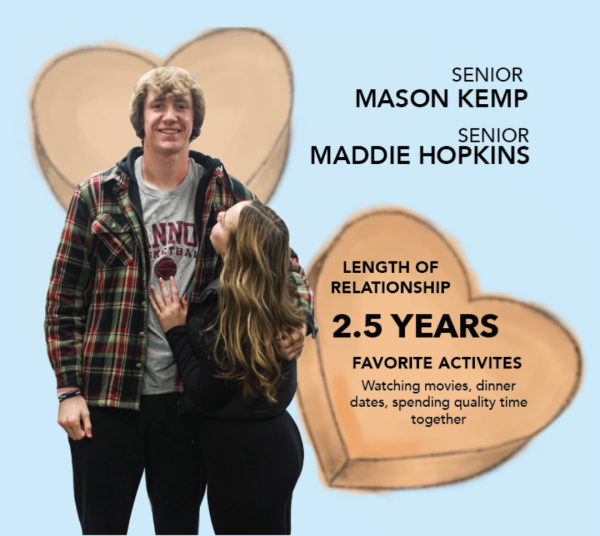
Skramstad agreed, explaining that for her and Suderman, other people said a lot of things about the controversial aspects of her relationship.
“At the beginning of our relationship, we struggled a lot with other people’s opinions,” Skramstad said. “A lot of people had a lot of things to say about our relationship: the age difference and also it being a gay relationship. That got in the way a lot for the first couple of months and then we just started to [stop caring, then other] people stopped caring.”
For Kemp, relationship publicity is one of the aspects of dating in high school that is different from dating later on.
“More people notice you guys in high school rather than in college because there’s more people in college, so it’s harder to keep the relationship private [in high school],” Kemp said.
Hale and Estes have experienced some of the negative effects of this publicity in their relationship, sharing that trust helped them through it.
“People will try to start rumors about you,” Hale said. “Sometimes people just want to start drama around it, but you just have to trust your partner.”
For Skramstad and Suderman, their relationship is often judged and compared to others, especially because it is a LGBTQ+ relationship.
“Oftentimes high school relationships are compared to one another,” Skramstad said. “[People say] ‘oh, well, their relationship is different from theirs’ and ‘their relationship is better’ but realistically you don’t know someone’s relationship because you’re not in it. I know people have said some crazy things about our relationship, like that I was faking being gay because people didn’t know that I was gay when I came to this school. People say that all the time, ‘you look straight’ and I [say], ‘well, I’m not.’”
Aside from the negative opinions of their peers, students in high school relationships also often face judgment from adults who view their relationships as unserious. However, McGarry believes that there is no reason someone cannot form a serious connection with someone else while in high school.
“[High school relationships are] extremely meaningful,” McGarry said. “[Many people say at] our age, we can’t feel those feelings of love that people in more mature relationships have, but I don’t think that’s true at all. Another thing that bothers me is the high school sweetheart concept where they’re just destined to fail. If you find your person, I don’t see why it’s an issue if you find them in high school.”
Estes agreed, saying that high school relationships can last if both people put in the effort.
“I think a lot of people think [high school relationships] will never end well, but I think if you really put the work into it and try to maintain it, it can be good and will actually last,” Estes said.
Making it Worthwhile
A healthy relationship can look different for everyone, but there are some qualities that can make a relationship last. Even when a relationship doesn’t last, it can be a valuable learning opportunity.
From a teacher’s perspective, social studies teacher Jeff Strickland believes that a high school relationship should be viewed as a learning experience.
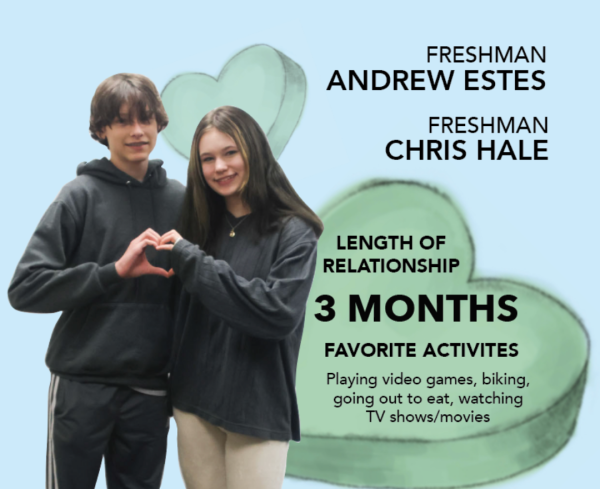
“A lot of people in high school don’t really know what they want in a relationship and maybe a long-term relationship and a spouse,” Strickland said. “You just don’t know and don’t have life experience. I think it is a learning experience.”
McGarry explains that just being in a relationship has already helped him to learn new things.
“I continue to learn so much from this relationship,” McGarry said. “I don’t see it ending anytime soon. I just know this relationship has taught me a lot and [Miller] has taught me a lot.”
For Agre, there is no issue with dating in high school. She thinks it’s important for growth no matter the outcome.
“High school relationships are building a base for you as a person to see who you want to be and who you want to be with and ultimately what you want from life,” Agre said. “With some of these relationships that aren’t successful, they’re still just as important because they helped form that idea of your future partner or even if you want a future partner.”
Similarly, Skramstad believes that just the experience of a relationship in high school makes it worthwhile.
“I would 100% believe a relationship in high school is worth the time and effort,” Skramstad said. “If it doesn’t last, you are learning what works best for you, what you need in a relationship, what you are searching for in a person. Just because you’re going off to college in a little bit doesn’t mean that you don’t deserve the experience of liking someone or possibly loving someone or someone liking you or someone loving you.”
Getting to experience dating, and possibly love, during high school can be a fun experience. Family Consumer Sciences teacher Ellen Gray teaches that this should be the priority, rather than the long-term plans for a relationship.
“I really think high school dating is a great time to see what we like, what we don’t like and what kind of things we really need in relationships,” Gray said. “It’s just really to have fun and learn how to date before it’s more serious.”
According to Hale, just having someone to have fun with makes having a relationship worth the effort.
“It is worth the time to have someone,” Hale said. “You know they’re going to have your back and you support each other and you have fun together.”
For Kemp, the chance to find a lifelong partner makes the difficult aspects of high school relationships worth it in the end.
“Just go for it if it feels right,” Kemp said. “You never know what could happen out of it if you find the right person.”
More than just Romance
Despite dating’s many benefits, it is not the only form of love. Students love more than just romantic partners, with some saying family members and others saying Taylor Swift.









